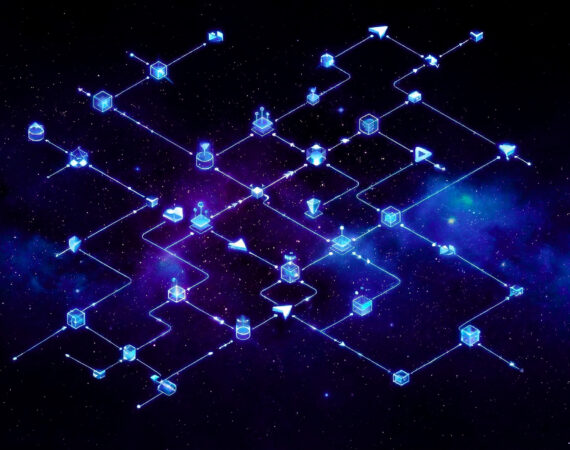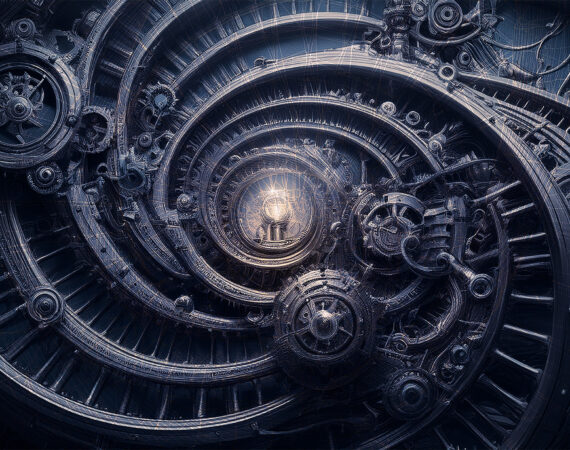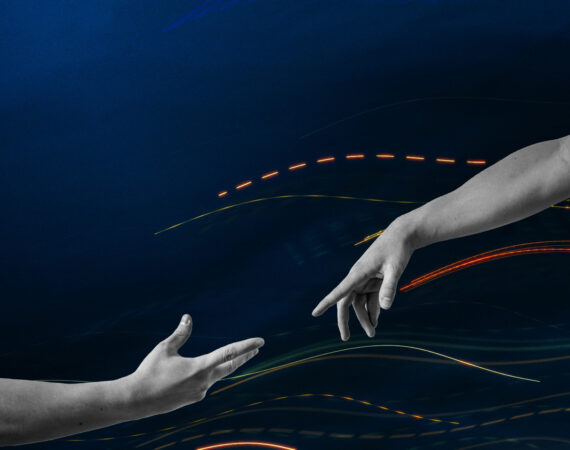AI insights
-
How has AI impacted the field of protein science according to the 2024 Nobel Prize in Chemistry?
AI tools like AlphaFold and Rosetta have revolutionized protein science by predicting protein structures, solving a longstanding challenge in chemistry. This advancement accelerates scientific discovery and opens new possibilities in medicine and environmental science.
-
What role did AlphaFold play in the recent advancements in protein science?
AlphaFold significantly reduced the time needed to determine protein structures, which has accelerated scientific discovery in the field. This breakthrough was a key factor in the recognition of AI's impact on protein science by the 2024 Nobel Prize in Chemistry.
-
How is AI transforming the UX design industry according to Google's GameNGen?
Google's GameNGen is transforming UX design by enabling adaptive user interfaces that provide hyper-personalized experiences. It also democratizes design tools, making high-end UX accessible to small teams and indie designers.
-
What are some ethical considerations in using AI for healthcare?
When using AI in healthcare, privacy and data security are crucial to protect patient information. Additionally, AI should be used as a supplementary tool, with critical evaluation and professional medical advice remaining essential.
-
How does AI contribute to the democratization of design tools in UX?
AI accelerates the design process and makes high-end UX accessible to small teams and indie designers, leveling the playing field. This democratization allows more creators to participate in the design industry.
-
What potential does AI hold for creating novel proteins?
AI has enabled the development of methods to create entirely new proteins, expanding the possibilities in protein engineering. This innovation is part of the breakthroughs recognized by the 2024 Nobel Prize in Chemistry.
-
How can AI tools like ChatGPT assist in healthcare when traditional methods fall short?
AI tools like ChatGPT can offer potential treatment plans and insights, providing supplementary support when conventional medicine is insufficient. Success with AI in healthcare requires organizing comprehensive medical data for effective analysis.
In a groundbreaking moment for science, the 2024 Nobel Prize in Chemistry has been awarded for revolutionary advances in protein science through artificial intelligence. AI tools like AlphaFold, developed by Demis Hassabis and John Jumper, have cracked a decades-old challenge by predicting protein structures, transforming our approach to medicine and environmental science. Meanwhile, David Baker's work on designing novel proteins opens doors to creating custom solutions for pollution and disease. This journey began with AI's triumph in the board game Go, showcasing its potential beyond games. Today, AI is reshaping the very molecules of life, proving we're not just imagining the future—we're actively building it.
This article covers how the 2024 Nobel Prize in Chemistry recognized breakthroughs in protein science achieved through artificial intelligence. It discusses how AI tools like AlphaFold and Rosetta revolutionize our understanding and engineering of proteins, opening new possibilities in medicine, environmental science, and more.
- AI in Protein Folding: Hassabis and Jumper used AI to predict protein structures, solving a 50-year-old challenge in chemistry.
- Revolutionizing Research: AlphaFold significantly reduced the time needed to determine protein structures, accelerating scientific discovery.
- Designing Novel Proteins: David Baker developed methods to create entirely new proteins, expanding applications in fields like medicine and pollution control.
- From Board Games to Biology: The story began with AlphaGo’s success, showcasing AI’s transformative power beyond games.
- Global Impact: Over two million researchers worldwide have used AlphaFold2, democratizing access to advanced protein modelling.
I’ll be honest—I never really understood chemistry, and I’ve never been particularly good at it. But this news made me sit down, read, and actually want to understand. It’s not every day that something in chemistry catches my attention, but the 2024 Nobel Prize in Chemistry did just that.
This year, the Nobel Prize in Chemistry went to something unexpected yet amazing: neural networks! It feels like the future is truly here, with artificial intelligence leading the way.
Here’s the simple version of what the Nobel Committee said:
“Half of the prize goes to Demis Hassabis and John Jumper for using AI to solve a problem that chemists have struggled with for over 50 years: predicting the 3D structure of a protein from its amino acid sequence. Thanks to their work, we now have the structure of nearly all 200 million known proteins. The other half of the prize goes to David Baker, who developed methods to create proteins that have never existed before—many of which have brand new functions.”
And to think, this all started with a board game. Go is an ancient board game from China, played on a grid where players take turns placing stones to control territory. It’s known for its simple rules but incredibly complex strategies. Back in the 2010s, Go was thought to be one of the toughest challenges for computers. There were more possible moves in Go than atoms in the universe, and the best Go programs could only reach the fifth dan (a ranking level). That was until 2015, when Demis Hassabis and his team at DeepMind created AlphaGo—a program that used deep learning to teach itself how to play, much like how kids learn by being rewarded for good behaviour (a method called reinforcement learning).
When AlphaGo defeated Lee Sedol, one of the world’s top players, it shocked the Go community and led to South Korea investing heavily in AI development.
But Hassabis had bigger plans than just winning a board game. In 2014, Google bought DeepMind for around $500 million, and they were right to see its potential. AlphaGo’s successor, AlphaFold, developed by Hassabis and protein modelling expert John Jumper, took on a much tougher challenge: figuring out the shape of proteins. Think of proteins as tiny machines in our body, each with a unique shape that determines what it can do. AlphaFold could predict these shapes in just minutes—something that used to take scientists years, if they could even manage it.
By October 2024, over two million people across 190 countries had used AlphaFold2’s open-source code. This was a game-changer, turning years of lab work into just minutes of computer processing. It’s not just a time-saver—its helping researchers make new discoveries in medicine, environmental science, and more.
David Baker, the third Nobel laureate, took things further. He created the Rosetta neural network, which can work in reverse: starting with the desired shape of a protein and figuring out the sequence of amino acids needed to create it. In other words, it allows us to design entirely new proteins for specific tasks—like breaking down pollutants, fighting diseases, or creating new materials. Imagine designing a custom-made protein to solve a specific problem, like a key made perfectly for a lock. (Fun fact: DeepMind also launched a similar tool called AlphaProteo.)
AI keeps pushing boundaries, and today it’s not just about winning games—it’s about changing how we understand and engineer the very molecules of life. From designing new medicines to tackling climate change, the possibilities are endless. This year’s Nobel Prize proves we’re not just predicting the future—we’re building it.
image credit: ©Terezia Kovalova/The Royal Swedish Academy of Sciences






